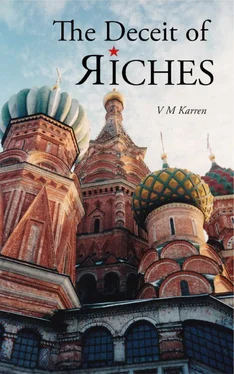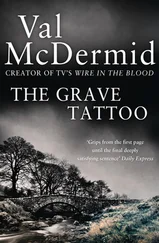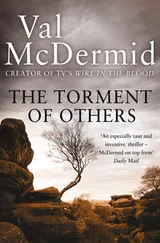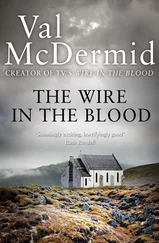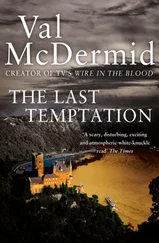The corridor, kitchen, bathroom, and WC were shared facilities. The bathroom was just that, a small room just big enough for a bathtub, the gas heater for the water and a washbasin with a scratchy mirror hanging above it and one dim light bulb hanging from its cord. The kitchen was very basic; it had a sink, a hot water heater a gas oven and range. I found out quickly that the oven was a gas leak danger so I bought a pot, a frying pan, one kitchen knife and cutting board for cooking on the gas range. The others in the flat had a small half-size refrigerator with a small ice box, which doubled as a preparation counter. There were no cupboards or drawers so I hung my pans and utensils on nails high on the kitchen wall.
With some good sweeping, scrubbing, some well-hung curtains and a light shade over the bare light bulb dangling from the ceiling, the room started to become a home. A cold home, but nonetheless, it was my space. I discovered that the space between the two window panes was cold enough to keep foods frozen for over a week and so I had no need for a refrigerator. For the first three weeks, I slept on the floor next to the radiator with the mattress and blankets from the rickety old cot. Most nights I slept with my big wool coat wrapped around my feet and my black mink shapka on my head to stay warm enough. Some nights in February were cold enough in my room that by morning a thin layer of ice would form on a pot of boiling water I would place under my bed to help get warm enough to drift off to sleep.
My new neighbors and flat mates were two women, an aunt and niece combination. The aunt, Natasha, who I simply called Babushka (Grandma) was nearly seventy years old and her niece, Raiya was in her early forties. These women were indeed both Tatars, not Russians. Babushka’s parents settled in Nizhniy before the communist revolution, from Kazan, the cultural center of the Muslim Tatar nation just down river from Nizhniy. The two ladies shared one room that was the same size as the one I lived in alone.
When I first moved into my room my neighbors were very distrustful of me and each evening they made a point of closing their door with a slam and very loud and obvious turn of the deadbolt, once, twice, thrice. This went on for about two weeks before they realized that I was not a threat. It took about three weeks of living around each other before they were willing to open up and have any type of ‘get to know you’ conversation.
“A few years ago, I had my own two-bedroom apartment and lived in the old city where I worked as a secretary at a trading company, but now my salary doesn’t even pay for a room by myself,” Raiya complained to me as we prepared our separate dinners in the kitchen, “All the prices went up about three years ago. In three months, my entire savings was used just to feed myself! No more holidays, no more birthday presents for the nephew and niece, and don’t even talk about Babushka’s pension. She can hardly buy a loaf of bread with it since Yeltsin raised all the prices. With Gorbachev, we were all hungry together. With Yeltsin, we see the others eating while we scrape crumbs off the table now.”
Babushka pouted on her stool in the corner of the kitchen looking sour and bitter mulling, “…and the factory used to give me new boots every winter as part of my pension, but now they don’t even do that. The army doctors all want a bribe and then we have to pay for the medicines they prescribe to us. What is fifty years of service to the Red Army good for anymore? Nothing! My pension buys me one week of food. If I didn’t own my room, I’d be on the streets already like Raiya.”
By mid-February, I started recognizing the locals: faces in shops, at the bus and metro stations. I knew where a few of them lived specifically, knew who their families were and their free roaming pets. One of the faces and routines that I came to notice most often was that of a woman who always walked her dog at the oddest times, but usually around the same time every day—twice a day no matter how cold or hard the snow was falling. She was very devoted to the care of her dog. Several times a week I would see her outside my window in the stretch of snow and trees between my ground floor window and the street.
Some bus drivers and shop keepers even started recognizing me too. The fellow at the newspaper kiosk at the metro station when saw me at the window would have my preferred newspaper ready for me with me and I paid him usually just once a week. Despite the ever freezing temperatures I was slowly warming up to the neighborhood and life in the workers’ district.
“Yulia, what’s wrong? Why are you crying? What’s happened?” I whispered into the telephone hanging in the metro station.
Yulia had missed our lunch date that Sunday morning, bright and bone chilling cold. I called to hear if she had fallen ill or if something else had come up. Not having a telephone, I seemed to always need to call around to hear the details when plans changed.
“He’s dead, Peter. They killed him!” she whimpered on her side of the line. “They killed him in front of his children and wife right on the street. It’s just horrible,” she sobbed and excused herself and hung up the phone.
I rode the metro to the Zarachenaya station to Yulia’s apartment and found her there alone curled up on the sofa with the television on. The serious and shocked tones of the newscasters coupled with the gruesome camera footage of a corpse under a blanket laying on top of a crimson ice pack on a frozen Moscow street chilled my blood.
“Yulia, who is that? Who is dead there under that blanket?” I asked quietly, not taking my eyes from the television screen.
“Bolshakov, Dmitri Bolshakov,” she replied with the voice of a mouse, nearly catatonic.
“You mean the journalist Bolshakov?” I asked shocked. She nodded again and tears rolled down her cheeks. She held her face in her hands. I tried my best to comfort her but could only put my arm around her shoulders and sit with her quietly on the sofa.
“I read some of his articles at the library this week. He is a brazen reporter, that is for sure,” I commented in praise of his fearless reporting on corruption and criminals.
After nearly an hour of saying very little and watching the same footage play on a loop, Yulia turned off the television set and tried to collect herself.
“Please excuse me. I don’t like people to see me this way. I will go clean myself up,” she apologized.
“Yulia, sit down. You don’t need to apologize. Tell me more about Bolshakov. Tell me why you think he was murdered. I am very interested to understand what has happened,” I said quietly inviting her to sit down again and talk about it.
Yulia sat down again on the sofa and pulled her blanket up over her legs and up around her neck, leaving only her face and hair exposed to the afternoon sun, which poured in from the frozen outside.
“Bolshakov was the most important investigative journalist in the whole country. He was working to expose the corruption that Gorbachev was working to root out of the government before Yeltsin took over. So many other journalists and newspapers are too afraid to report on the things he reports on and now for sure, nobody else will go after the corrupt ministers and criminals when they see this on the television and in the newspapers today. They control us with fear, Peter, and they get away with it because they can kill anybody, anywhere and keep stealing from us and the government doesn’t do anything about it.” The fire in her eyes began to burn again as she talked.
“Who do you think did it?” I asked to keep her talking.
“The government, the criminals. They’re all the same. Does it matter who actually shot the man?” she ranted, “The gangsters pay the civil servants, the civil servants protect the criminals and they all get rich together while they rob us all blind!” Yulia’s feisty spark was warming up her pale cheeks.
Читать дальше
